Registration is open
October 2023
Objectives
The Master in Project Planning and Management 2021-2027. Next Generation Italia provides the students with knowledge and skills required to adequately interpret the guidelines established by the European Union, translating them into the specific context of the national legal, administrative and economic landscape. The course will focus on the development of abilities related to inter-institutional communication, as well as on the ability to interact with higher levels, to negotiate in the promotion, planning and fullfillment of the development of our territory, and on the improvement of the public-private collaboration. Furthermore, upon completion of the course, the students will be able to:
- orient themselves in financial programmes related to the issuing of competitions and calls;
- define the stategic approach to attain economic aid;
- plan the objective of the development of their organization, in line with the economic growth policies established by the EU;
- set up the structure of european projects and requests for funding;
- draft development plans according to the principles of project management;
- use techniques and methods for the drafting of project budgets and for reporting.
Target students and Career Opportunities
The course will enable the students to attain roles of responsibility in various levels of the Public Administration as well as in the world of public and private businesses. Furthermore, the candidates will acquire the knowledge required to contribute to the new economic and social policy enforced by the EU, based on "government, implementation and monitoring".
In particular, the Master trains the following professional profiles:
- Executives and officers of enterprises in various sectors and for various industrial scales.
- Executives and officers of local and regional Public Institutions.
- Executives and officers of Trade Associations, Trade Unions, Voluntary Associations, International and non-governmental Organizations, Universities and research institutes.
- Freelancers, europlanners available for institutions and companies.
- Project managers in public institutions and public/private companies.
Admission
Applicants to the Master in Anti-corruption must have attained a Specialist Degree, a Master's Degree, and/or a Degree of the Old System, obtained at a University of the Italian Republic; as well as another equivalent Higher Institute, or a degree attained at an International University, provided that said Degree Title is legally recognized in Italy.
All the aforementioned requirements must be demonstrated within the deadlines provided in the Academic Regulations, under penalty of non-admission to the Master's selection test.
Annual Tuition
The annual tuition fee, without financial benefits, for enrolling in the Master's program is € 10.000
Enrollment
Students who wish to enroll may request an appointment with the Orientation Office, at the following number: +39 06 3400 6000
Scientific Director
Gianluca Fabbri
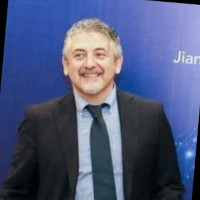
The Scientific Director of the Master is Eng. Gianluca Fabbri. Gianluca Fabbri attained a degree in Electrical Engineering at the University Roma “La Sapienza” and a double PhD in Electrical Engineering at the Università di Roma “La Sapienza” and the Universidad Politécnica de Madrid. Throughout the years he has helped to create and coordinate industrial partnerships and collaborative networks established within the framework of research and development projects, for specific scientific/technological purposes; as well as to build up financing proposals on regional, national and european projects. He acts as advisor for companies and public administrations for the purpose of coordinating projects financed with direct and indirect funds and for the activity of technology transfer and internationalization. He is an expert evaluator of EU programmes for the European Commission, DG Environment, CINEA, HORIZON Europe programmes and the European Innovation Council and is Key Expert for the EU International Urban and Regional Cooperation programme for city-to-city cooperation on sustainable urban development and innovation for local and regional development between Europe and the rest of the world.
Professors
Filippo Tiburtini
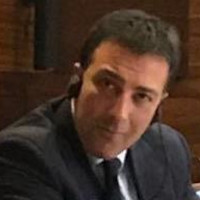
Filippo Tiburtini attained a Degree in Economics and a PhD in Development Economics at the Università degli Studi “La Sapienza” di Roma, and a Master's Degree in Social Science at the University of Oslo. He carried out academic research activities and gives lectures and seminars in many Italian and International Universities and Business Schools. He developed an experience of approximeately 24 years in the fields of management, organisational and change management analysis, micro-macroeconomic analysis and strategies for local development, international competitiveness, FDI attractions and territorial marketing. He has worked on institutional projects funded by the World Bank as well as various direct and indirect funding programmes established by the European Commission's Programming Cycles as well as national government agencies. He coordinated various development cooperation projects between Italy and other countries. He has more than 22 years of experience in the development, implementation and management of projects of international multi-bilateral cooperation in various countries. Said professional activities granted him an in-depth experience in the management of the entire project chain (proposal's definition, application for calls, management, monitoring of financial and physical indicators of realisation, financial reporting and entire documentary production) with international donors and national funds by successfully implementing certified and approved methodologies at different levels. He published articles and essays on various themes such as management of international cooperation projects, PCM and development and internationalization policies of Public Administration and business systems.
Adelma Di Biasio
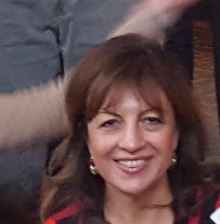
Adelma Di Biasio is an officer of the European Union and has been working at the European Research Agency in Brussels since 2002. Currently, she is responsible for the selection and implementation of projects funded within the framework of the Horizon 2020 and Horizon Europe Programmes. She has a background in humanities, as she holds two degrees (in Literature and Pedagogy) attained with honours, a university postgraduate diploma and diplomas in Project and Business Management. At the beginning of ner working career, she taught for fifteen years in Italy and promoted European projects within the framework of the Leonardo and Comenius European Programmes. During her career as a European civil servant, she was responsible for the launch of the EU Youth Portal in Europe, desk officer for the Mediterranean countries (Lebanon, Cyprus, Morocco), participated in joint projects between the European Parliament, the Council and the European Commission within the framework of the 'Youth' Programme. More recently, within the framework of the European Research Area policies, she managed actions of the 'People and Marie Sklodowska Curie' Programmes for researchers. Between 2008 and 2009, she worked at the European Food Safety Agency (EFSA) in Parma and in 2017 for FAO in Rome.
Raffaele Buonocore
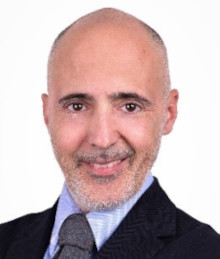
Raffaele Buonocore attained a Degree in Economics and Commerce from the University of Rome 'La Sapienza' and a Master in Business Administration at the Bocconi University. He is a member of the Rome Order of Acoountants and is a Chartered Accountant and Auditor. An expert in tax law, he holds positions as a member of the Board of Statutory Auditors in joint-stock companies. He has over twenty years of experience in the field of tax consultancy and financial statements of joint-stock companies and has over twenty years of experience in consultancy for the reporting and verification of the correct accounting of expenses incurred for the implementation of interventions co-financed by national and community funds. He is an auditor in charge of projects co-financed by national bodies such as the Presidency of the Council of Ministers and national and supranational government agencies such as the Italian Agency for Development Cooperation or the United Nations Voluntary Fund. Furthermore, he has developed in-depth experience in the field of technical-specialist consultancy to the Managing Authorities of National and Regional Operational Programmes, with particular responsibility for the definition of procedures and instruments for the performance of first-level controls, the drafting of in-depth notes, analysis and administrative-accounting audits aimed at the eligibility of expenditure reported in support of operations under programmes co-financed by EU funds. It has provided technical-specialist consultancy to Certifying Authorities of National Programmes.
Valerio Leonardo

Valerio Leonardo graduated in Business Administration (Specialization in International Buisness Management) at the “L. Bocconi” University in Milan; he also attained a Master in International Business Management at the “L. Bocconi” University in Milan and at the ESADE Business University in Barcelona. Expert in regional, national and community finance and in local development planning, he currently holds the position of Program Manager at Lazio Innova. He has considerable experience both in analysis and technical appraisal for the eligibility for funding of the applications submitted both in the implementation, monitoring, reporting and control of the applications accepted for funding under the 2014/2020 Lazio ERDF ROP, 2007/2013 Lazio ERDF ROP, 2000/2006 Lazio SPD and regional laws on incentives for enterprises. He also gained experience in the field of technical assistance, economic assessment and monitoring of programmes and projects owned by central and local governments co-financed with EU structural funds and national resources. Currently responsible for Lazio Innova S.p.A. of the operational management of the Public Calls for Proposals financed with resources of the 2014/2020 Lazio ERDF ROP dedicated to Industrial Research and Experimental Development Programmes, Network Contracts between enterprises in aggregate form, and Industrial Districts/Local Production Systems in Lazio. Program Manager, PMP® certified, responsible of the coordinated management of complex multi-annual projects. He is in charge of monitoring the progress of the projects related to the assigned programme, in close cooperation with the assigned project managers, supervising their activities, in order to ensure the achievement of the organisation's strategic objectives, adherence to the assigned budget, implementation of the planned schedule of activities, and compliance with company procedures.
Roberta Mancia

Roberta Mancia is a lawyer of the Rome Bar. She carries out her professional activity in Rome and Brussels, where she focuses on the realization of projects funded by the European Commission, as well as on international public procurement, project financing, project management, and intellectual property management and protection. Starting in 2002, she has realized and managed various projects financed by the European commission for companies, Universities and Public Institutions. Currently, she carries out the role of European planning consultant for Unioncamere Lombardia. Furthermore, she carries out the role of advisor in the field of EU projects and European Parliaments. She is founder and treasurer of Think Europa Institute, a new and dynamic reality who's main goal is the promotion of culture related to funding policies and direct and indirect funding programmes of the European Union. She is a lecturer specialized in EU projects and project management at university level. She participated as a lecturer to various conferences, training courses and seminars on European financial planning and programming.
Andrea M. Baldoni
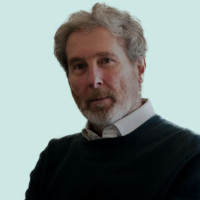
Andrea Baldoni graduated in Engineering and MBA at “L. Bocconi” University in Milan. He boast a long and successful career in corporate and investment banking, strategic and business advisory and project management. He has gained significant experience through a series of collaborations with Gruppo Intesa Sanpaolo, ENI Group, and international institutions (EC, UN System, IFIs). Andrea Baldoni is investor and member of boards and strategic steering committees at national and international investors as well as senior advisor, founding partner & CEO of Venture Club Deal investors. The main focus of his activities is on the innovation ecosystem: deeptech, energy, cleantech, circular economy, bio-economy (agrifood, biotech, blue growth), environment and sustainability. He has extensive experience as a senior advisor and jury member for the European Commission within the framework of various specific programmes (including: Horizon 2020, Horizon Europe, EIC, LIFE, EMFAF).
Adriana Calì
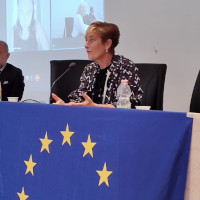
Adriana Calì graduated in Natural Science at the University Roma La Sapienza. After several years of research in the environmental field, she joined Lazio Innova SpA, an in-house company of the Lazio Region in 2003, where she is currently part of the staff of the Lazio Open Innovation Centre in Zagarolo (regional hub dedicated to open innovation). She is specialized in european projects and, more in general, in project management (she recently attained the ISIPM Base and EuMaps@ certifications). Adriana Calì has worked in particular on communication on Europe and European funds, collaborating both with the Commission's Representation in Italy and with the European Parliament. For years, she has been committed to putting her knowledge and professional experience at the service of the institutions and the territory.
Massimo Antonucci
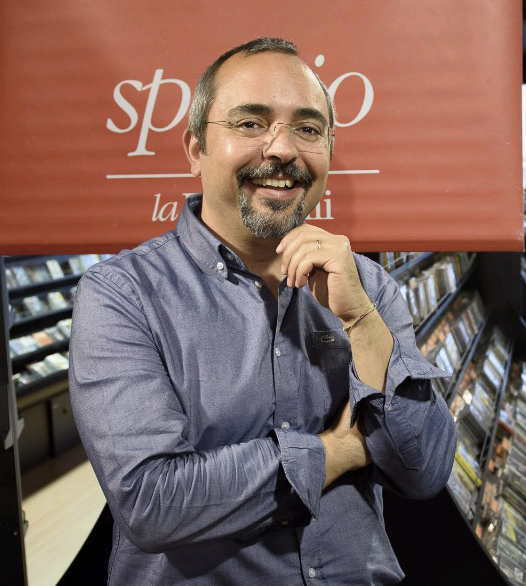
Massimo Antonucci is occupational psychologist and PhD in communication psychology. He has been involved for several years in the promotion of occupational well-being and management support services in SMEs and start-ups. He authored books and scientific articles on national and international journals on themes related to business creation and management, performing coaching counseling and training activity.
PROGRAMME
UNIT 1 - European institutions and their operation
hours: 20
- Introduction to European Planning
- European institutions and their opeation: Commission, Council, Parliament, Directorates General (DG)
- Regulatory proceedings and community acts
- Relationship between the EU and national and regional structures
UNIT 2 - PNRR, Structural Funds and Cohesion Policy
hours: 20
- National and european public policies for the development - The European Budget - Next Generation EU
- National Recovery and Resilience Plan
- Structural Funds and Programma Programming 2021-2027
- Governance and the system of management and control
UNIT 3 - Direct Funds
hours: 40
- Terminology and tools
- The main european programmes
- Informative funds and the management of programmes
- Calls for proposals and calls for tenders
- The process of planning in programmes with direct funds
- Management of projects financed by programmes with direct funds
UNIT 4 - Indirect funds
hours: 40
- Terminology and tools
- Information sources and management portals
- National and regional agencies for the management of programmes
- Calls and tenders
- The process of planning in programmes with indirect funds
- Management of projects financed by programmes with indirect funds
- Basic aid scheme
- Economic and financial requirements, how to read a balance sheet, administrative checks
- Management of partnerships, ATI, ATS, deeds of commitment
UNIT 5 - Project Cycle Management
hours: 60
- Introduction to PCM: Methodology, operational logics, supply chain and operational phases in Project Cycle Management
- Analysis phase: the Logical Framework Approach (LFA), analysis of key players, analysis of problems, analysis of objectives
- Opportunity monitoring phase: definition of strategic development lines, definition of operational areas of interest, identification of expressed and latent needs
- Identification of opportunities phase: definition of detailed project ideas, programmes of interest and their funding lines, tender announcement/calls and operational implementation in accordance with previous provisions.
- Planning phase: definition and meaning of the levels of the logical framework, methods of intervention, indicators, risk analysis, temporal planning of the activities
- Drafting of the project proposal: formularies
- Detailed planning of activities and work packages
- Work plans: tasks, milestones and deliverables, Gantt chart
- The budget: eligibility of costs, general principles, eligible and non-eligible costs, time eligibility
- Calls: funding calls, percentage of funding, pre-feasability and cash-flow; co-financing; the establishment of a budget for items of expenditure; study of budget forms of different financial lines of the EU; budget balancing;
- Exercise: Establishment of a project budget on the basis of a call and a project idea
- How to participate in calls
- Reference documents: programmes, work plans, calls, forms
- The administrative procedure of the project: negotiation and contract with the EU, restrictions and rules
UNIT 6 - Management of the project
hours: 50
- From the proposal to the funding phase: administrative and financial obligations between the Recipient and the European Commission; modality of implementation of the funding; general regulatory framework related to Community Subsidies; Administrative and Financial dispositions
- Managing the project: the project leader and the partner, different responsibilities; the project team, individual and collective responsibilities; coordinating a working group; managing of projects as an innovation model for companies and Public Administrations: case study
- Coordinating a partnership; management of stakeholders
- Managing change in the project; modification of the content; time control
- Communicating the project; the rules of communication established by the programmes
- DIssemination of the results
- Planning Expenses and connect them to the progress of the project
UNIT 7 - Monitoring, evaluation and reporting of projects
hours: 60
- The monitoring of projects
- Approach of the Logical Framework as a tool to monitor and evaluate the projects
- Monitoring tools: financial monitoring charts, risk monitoring charts
- Reports: types of report, Progress Report, contents, timing
- The evaluation of projects. Evaluation criteria: relevance, efficiency, impact, sustainability
- Techniques and quantitative and qualitative methods of evaluation
- Reporting: eligibility of expenditure; storage of documentation; management of deviations from the original balance; setting of administrative acts and periodic reporting of expenditure and draftring of interim reports; management of the relations with the partner; final report: closure of the project; drafting and preparation of the documents for the purpose of the evaluation; methodologies of evaluation ex-ante, in itinere and ex-post. Administrative, bank and tax aspects
UNIT 8 - speaking effectively with the eu and with various administrative levels
hours: 20
- Knowing how to negotiate and interrupting in a conscious way on a national level (direct interlocution with the European Commission), regional (with the superior levels)
- The participation to the negotiations with the Commission: defining the positions; the techniques and the styles of the negotiate
- Negotiation and influencing skills
- Lobby at European level
- Practical activity
Follow-up workshop activity
hours: 50
Project work
15 CFU
Each candidate of Master's Degree is required to prepare a professional training Project Work consistent with the topics covered by the course.
Said Project Work is an integral part of the Master's teaching activity, and is subject to assessment, providing 15 university training credits (CFU).
The aim of the final project is to submit one or more innovative and/or improving solutions through an in-depth study of context variables, processes and application models. The project may involve either the innovation of an activity, or the setting up or changing of an organisational structure, or even the improvement of a new operational procedure or the development of a new process. The PW can be individual or group: in the latter case, the individual contribution will be subject to specific evaluation.
The candidates will be required to take a final test at the end of each Unit. The grade attained for each test (expressed in thirtieths) will be an integral part of the final grade of the Master.
